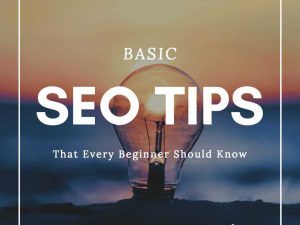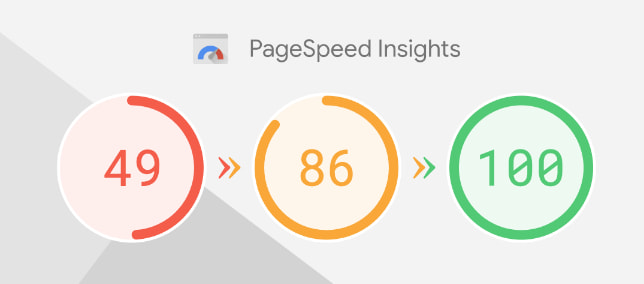Starting out in SEO can feel overwhelming. With so many different tactics and best practices to learn, it’s hard to know where to focus your efforts. The good news is, you don’t need to master every advanced SEO technique right away. By learning a few key beginner SEO tricks, you can make a big impact on your site’s search rankings.
If you are stuck with a cheap dedicated server hosting but don’t know anything about the tricks of SEO that works, you are likely going to see no results at all.
In this post, I’ll share 10 of the most valuable SEO tips specifically for beginners. These foundational SEO basics will help kickstart your optimization efforts and set you on the path to search engine success. Whether you’re launching a new website or looking to improve an existing one, these SEO tricks will give you a solid start.

10 Valuable SEO Tips for Beginners
1. Choose the Right Keywords
Keyword research is one of the most important beginner SEO skills. Taking the time to find keywords and phrases that people are actually searching for can pay off hugely in driving relevant organic traffic to your site.
Start by brainstorming a list of keywords related to your business or site topics. You can refine and expand this list using free keyword research tools like Google’s Keyword Planner, SEMrush, or Moz’s Keyword Explorer. Focus on keywords with decent search volume and low difficulty scores for the best chance of ranking.
Also pay attention to long-tail keywords – more specific phrases with 3 or more words. These are less competitive and can bring very targeted visitors. Prioritize keywords that fit naturally with your content and offerings.
2. Optimize Title Tags

Your page title tags tell both users and search engines what a particular page is about. Having keyword-rich titles that also make sense for users is a key on-page SEO element.
Each page should have a unique title tag up to 60 characters long, with your primary keyword appearing near the beginning. This helps search engines understand the topic and also makes the page title enticing when it appears in SERPs.
For example: “Beginner’s Guide to SEO: Top 10 Tips to Improve Your Search Rankings
3. Write Strategic Meta Descriptions
Meta descriptions give you a snippet space to describe each page and convince users to click through. While meta descriptions don’t directly impact rankings, compelling snippets can improve click-through rates.
Use 150-160 characters including spaces, and incorporate keywords naturally. Craft interesting meta descriptions that highlight your page’s unique value. Test different options to see which perform best.
4. Optimize Content Around Keywords
On-page content is where you really optimize for your target keywords. This includes things like:
- Using keywords in section headers (H2, H3 tags)
- Incorporating keywords in the page content organically
- Having a keyword density of 1-3%
- Placing keywords toward the top and in the first 100 words
- Using related synonyms and long-tail variations
Make sure your content reads naturally though – don’t over-optimize! The goal is to create useful, engaging content focused on your keywords.
5. Improve Site Navigation
Make it as easy as possible for users (and search bots!) to navigate through your site. A site architecture with simple, logical navigation menus helps both groups find relevant content efficiently.
Make sure your site architecture is clean and flat (3 or fewer menu levels), with descriptive menu labels. Have clear calls-to-action guiding visitors to important pages. This helps search engines crawl and index all of your site’s content.
6. Enhance Page Speed

Site speed is a ranking factor – improving it can help boost your organic traffic and SERP positions. There are various ways to enhance page speed, like optimizing images, minimizing HTTP requests, using a caching plugin, and more.
Test your pages with Google PageSpeed Insights and address any major issues impacting performance. Faster load times lead to better user experience and search rankings. Remember that investing in a low cost dedicated server is not enough.
7. Use ALT Text on Images
Adding ALT text attributes to your images has SEO benefits including better indexing, and accessibility. The ALT text should be a short, accurate description of the image content.
Using keywords naturally in your ALT text can help associate semantic relevance for search engines. This gives images extra optimization value.
8. Build Authoritative Backlinks
One of the best ways to improve search rankings as a beginner is to build quality backlinks from reputable external sites. This helps demonstrate your site’s credibility and authority on your chosen topics.
Focus on earning contextual backlinks from industry resources, relevant sites with authority in your space, local citation listings, and high-quality directories. Avoid low-quality links or schemes to manipulate rankings – stick with ethical tactics.
9. Publish Fresh Content Regularly
Adding new blog content and web pages gives search engines fresh pages to crawl, index and potentially rank. Earning links and social shares to new content can further boost your organic visibility.
Aim to publish optimized content on your site regularly – at least monthly is ideal for most websites. Look at search trends and seasonal topics to identify content opportunities. Curating or repurposing existing content can also work.
10. Monitor and Refine Your Approach
SEO is an ongoing process. To keep improving, you need to monitor your efforts and refine based on what works best for your site.
Use Google Analytics, Search Console, and rank tracking to measure your progress. Study your top landing pages and traffic sources. Expand on any successes and optimize or switch up tactics that aren’t producing results.
Keep learning – there are always new SEO best practices to discover as algorithms and technology evolve. But start with these core essentials for SEO success.
Conclusion
Learning the basics of SEO doesn’t need to be an intimidating or overwhelming process, even for complete beginners. By focusing on core techniques like keyword research, on-page optimization, quality content, speed, and backlinking, you can build a solid SEO foundation.
Start small, stay patient, monitor your efforts, and be prepared to pivot and iterate as needed. Over time, these essential SEO tricks and best practices will lead to higher rankings, more organic traffic, and better results for your website.
FAQs About Beginner SEO Tricks
What are some quick SEO wins for new websites?
Some quick SEO wins for new sites include:
- Optimizing title tags and meta descriptions
- Improving site navigation
- Fixing indexing issues in Search Console
- Creating useful, keyword-optimized content
- Building initial backlinks from directories or niche sites
- Adding alt text to images
- Doing an SEO audit to identify issues
How long does it take for SEO efforts to reflect in rankings?
It generally takes 2-6 months for new SEO tactics to start positively impacting search rankings, depending on the competitiveness of keywords. Consistent efforts over time are required to build and maintain rankings.
What are the most important on-page SEO elements?
The most important on-page SEO elements are:
- Optimized page titles
- Keyword-focused meta descriptions
- Strategic use of keywords in content
- Proper heading tags (H1, H2, H3)
- Good internal linking
- Fast page speed
- Mobile optimization
Should beginners focus on local or national SEO?
For most small businesses, focusing your SEO on local keywords and rankings makes sense initially. Targeting national keywords and rankings requires significantly more authority and resources. Build up your local presence first.
How often should you create new content for SEO?
Ideally, aim to publish one or more new pieces of optimized content per month. This provides search engines with fresh pages to index while building keyword relevance and authority over time.
Disclosure: The articles, guides and reviews on BlowSEO covering topics like SEO, digital marketing, technology, business, finance, streaming sites, travel and more are created by experienced professionals, marketers, developers and finance experts. Our goal is to provide helpful, in-depth, and well-researched content to our readers. You can learn more about our writers and the process we follow to create quality content by visiting our About Us and Content Creation Methodology pages.

